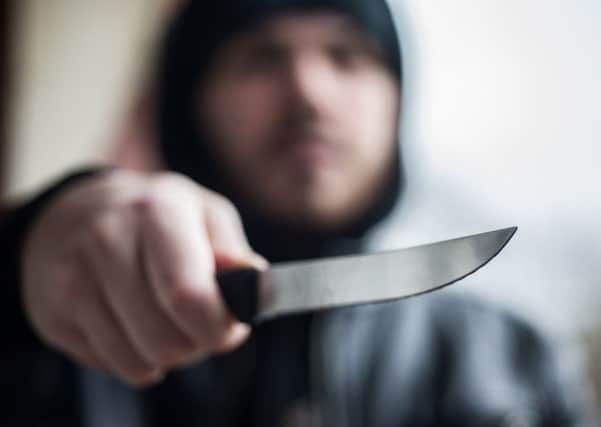Fifth of knife buyers not asked to provide ID, but checks rise


Research using mystery shoppers found nearly a fifth of knife buyers were not asked for ID even though it is illegal to sell to anyone under the age of 16.
Audit firm Serve Legal used more than 300 teenagers at stores across Scotland to monitor the performance of retailers in asking for proof of age.
Advertisement
Hide AdAdvertisement
Hide AdIt found 82 per cent of knife buyers were asked for ID last year, compared to 59 per cent in 2017. But age verification was sought at just under two-thirds of homeware stores, compared with 85 per cent of supermarkets.
Ed Heaver, director at Serve Legal, said: “Knife crime is a complex and deep-rooted problem with far-reaching consequences.
“No retailer, whether a major supermarket chain or a single hardware store, wants to be responsible for selling a knife to an underage person that ends up being used with tragic consequences.”
While the research found an improving picture on the high street, online sales offered a less positive story.
Last year, 227 young mystery shoppers in Scotland ordered age-restricted goods, including knives, from online retailers and mail order companies.
More than half (57 per cent) took delivery of their order without being asked for proof of age. In Scotland, the law allows for the sale of kitchen knives to those over the age of 16, whereas in England and Wales it is illegal to sell a knife, blade or axe to anyone under the age of 18.
Any young person trying to buy a knife should be asked for official proof of age such as a passport or driving licence.
Analysis of police statistics carried out by the Scottish Government showed the number of serious assaults and attempted murders in Scotland has fallen by more than a third in a decade driven by decreasing levels of violence among young men in Glasgow. However according to the most recent recorded crime figures, the total number of crimes involving a bladed/pointed instrument increased 14.2 per cent in the past year to 7,140.
Advertisement
Hide AdAdvertisement
Hide AdSuperintendent Ian Thomson said: “The illegal carrying and use of knives can have a catastrophic effect on the carrier, victims and members of the community. This is a matter that Police Scotland and partners treat as a priority.”